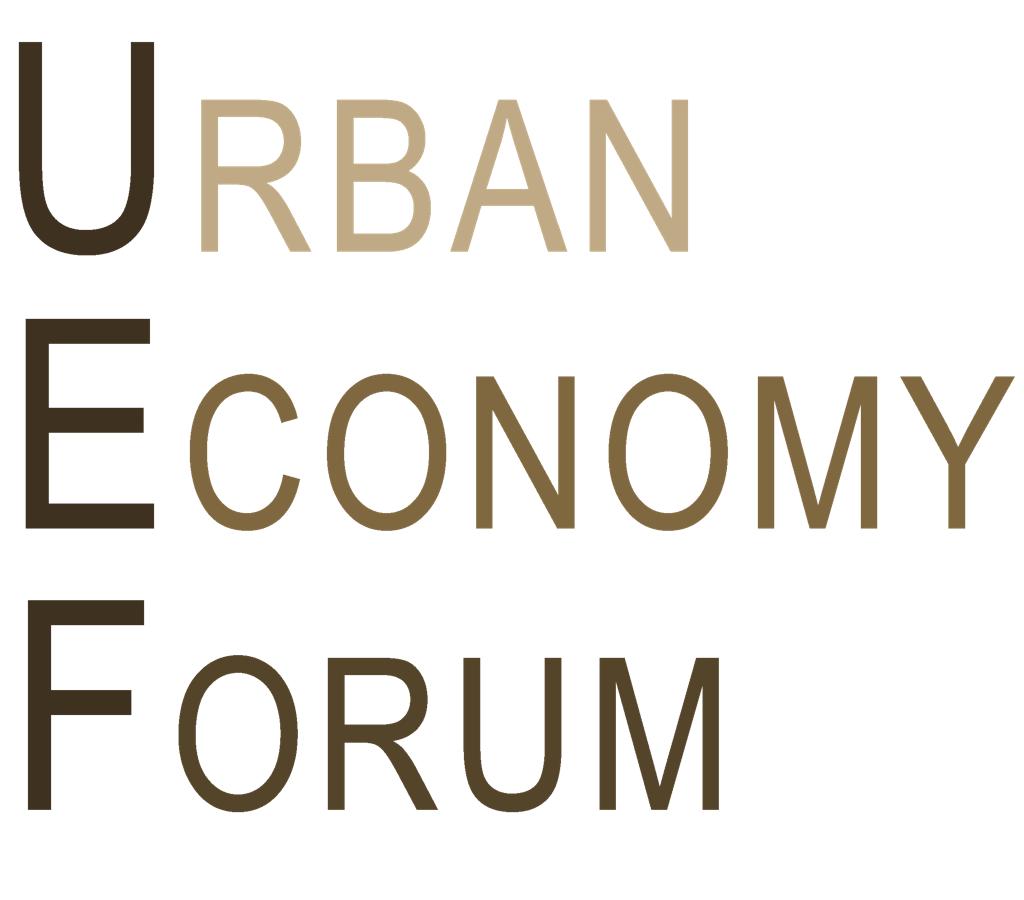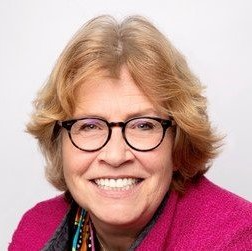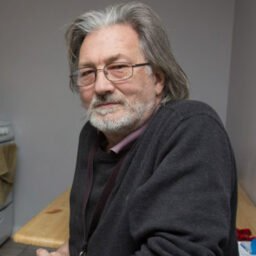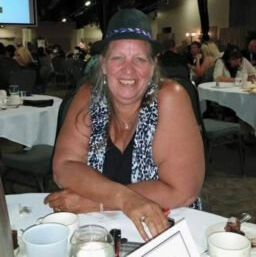Housing and Urban Recovery
11:15 AM - 12:45 PM EDT
Topic: Homelessness & Housing Insecurity: The Lived Experience
Inequality has long been built into, and driven by unjust housing systems in various countries, based on class, gender, disability, age and ethnicity. Housing can be an equalizer and an element of justice and growth; a factor that propels shared prosperity and environmental sustainability. As cities look to urban recovery it is important that the voices of people with lived experience of homelessness and housing insecurity are part of this conversation.
This session features the voices of people with lived experience in conversation with housing policy experts from a diversity of backgrounds.
Speakers
Moderator of the Session
Mary Rowe
- President of Canadian Urban Institute
Mary is a leading urban advocate and civil society leader who has worked in cities across Canada and the United States. Mary comes to CUI with several years of experience as an urban advocate and community leader, including serving as Executive Vice President of the Municipal Art Society of New York (MASNYC), one of America’s oldest civic advocacy organizations focused on the built environment. A mid-career fellowship with the US-based blue moon fund led her to New Orleans where she worked with national philanthropy, governments and local communities to support rebuilding after Hurricane Katrina. Prior, Mary was President of the Canadian platform Ideas That Matter, a convening and publishing program based on the work of renowned urbanist Jane Jacobs.
Mary has been a frequent contributor to national and international city-building programs, including UN Habitat and the World Urban Forum. She brings an extensive international network of practitioners from government, industry, community activism, and the city-building professions to strengthen CUI under her leadership.
Al Wiebe
- Co-Chair of Canadian Lived Experience Leadership Network
Al spent 26 months homeless on the streets of Winnipeg. He had lost a 150k a year income in advertising and could not handle the trauma of that experience as he suffered from unchecked clinical depression. Months later he was on the streets. He was turned away by the healthcare system as a homeless person yet helped by the same system later on.
Al is a 24/7 advocate for the homeless and those in poverty. He is chair of the Lived Experience circle in Winnipeg and Co chairs the Canadian Lived Experience Leadership Network. Al directs a lived experience led empathy driven housing program in Winnipeg, Toronto, and Vancouver. He is facilitating a lived experience leadership program that promotes Persons with Lived Experience to leadership roles in a 3-year national project. Al hosts a radio show ” Of no fixed address” to help educate and advocate for poverty and homelessness and specializes in Community and peer engagement. He serves on many boards and committees from homelessness, to poverty health, and human rights with the city’s “Human rights committee of council “. Al also serves on the Reaching Home Community Advisory board in Winnipeg. Al continues to advocate through the United Way speaker’s bureau and through the media.
Prentiss Dantzler
- Professor of Sociology, University of Toronto
Dr. Prentiss Dantzler joined the University of Toronto (UT) as an Assistant Professor of Sociology in 2021. Previously, he held faculty appointments at Georgia State University (Urban Studies) and Colorado College (Sociology). He also served as a Canada-U.S. Fulbright Scholar at UT and as a Scholar-In-Residence at the Institute for Research on Poverty at the University of Wisconsin-Madison. He received his Ph.D. in Public Affairs with a concentration in Community Development from Rutgers University-Camden. He also holds an M.P.A. (Urban and Regional Planning) from West Chester University and a B.S. (Energy, Business and Finance) from Penn State University.
His research sits at the nexus of urban poverty, neighbourhood change, race and ethnic relations, housing and community development. As an interdisciplinary scholar, Dr. Dantzler explores how and why neighbourhoods change and how policymakers and communities create and react to those changes. He currently serves as a Deputy Editor for City and Community and on the editorial board of the Journal of Urban Affairs. He also serves on the governing board of the Urban Affairs Association.
His current research explores 1) the relationship between housing subsidies and neighbourhood change across the Greater Toronto Area, 2) nonprofits and diverging views of gentrification, 3) the relationship between community associations and segregation in the U.S., and 4) racial capitalism and urban processes.
Debbie McGraw
- Co-Chair of Canadian Lived Experience Leadership Network
Debbie has worked tirelessly since 1995 on eliminating poverty in Saskatchewan, as well as in Canada. She spent many years as an advocate, activist and researcher on social issues, such as housing, homelessness, women’s issues and poverty. Including eight years on the Canada without Poverty board and recently co-founded the Lived Experience Advisory Council Canada, (Now the Canadian Lived Experience Leadership Network) who developed the “Seven Principals of Inclusion”. When the National Housing Strategy was announced Debbie started working with Emily Paradis and others to ensure that this strategy was human rights based, Debbie continues to remain a part of this work as a committee member of the Rights to Housing Network.
After 20 years of raising her children Debbie enrolled in University graduating in 1998 with both her certificate and bachelor’s degree in Indian Social Work.
Over the last 7 years Debbie worked at Mumford House, a homeless shelter for women and children, she left this full-time position to work for the Lighthouse Supported Living Inc, as a Housing Locator and shortly after moving to a Rapid Rehousing Case Manager with the Housing First program. Since the Housing First Program was shut down, Debbie has worked for Saskatoon Housing Initiatives Partnership as a Housing Case Manager.
Debbie’s strength for this work came from her own lived experiences. There is no better motivator then frustration and anger. Debbie learned how to take her experience, frustrations, anger, and knowledge and turn them into powerful tools for social change. Debbie is also the proud mom of 5 grown children and grandma to 16 ranging in age from 18 months to 22 years old.
Abdikheir Ahmed
- Executive Director of Aurora Family Therapy Centre, Winnipeg
Abdikheir Ahmed is the Executive Director of Aurora Family Therapy Centre, in Winnipeg. He has previously served in a number of capacities including as Director of Policy at the Office of Canada’s Minister for Families, Children and Social Development, Executive Director of the Immigration Partnership Winnipeg (IPW) and as the Executive Director of the Immigrant and Refugee Community Organization of Manitoba (IRCOM) Inc.
Abdi has extensive experience working with immigrant and refugee communities and designing and executing national social development policies. He is a passionate advocate for immigrants and refugees in Canada.
Abdi has received numerous awards for his work creating life-changing opportunities for new Canadians. He was a CBC Manitoba Future 40 Finalist in 2014 and is the recipient of the Order of the Buffalo Hunt, one of the province of Manitoba’s highest honors for his work advocating for refugees and building bridges with Canadian communities.
Abdi has a Master’s degree in International Peace and Conflict Resolution from the University of Queensland in Brisbane, Australia where he studied on a Rotary Peace Fellowship.
Lydia Stazen
- The Institute of Global Homelessness, USA
Lydia has dedicated her career to building a world where all people have a place to call home and a strong foundation upon which they can build the lives they envision for themselves. Lydia has held executive leadership roles in anti-poverty organizations across the Midwest United States, focusing on housing, employment, education, and policy advocacy.
Immediately prior to joining the Ruff Institute for Global Homelessness, Lydia served as Vice Chancellor of Advancement and President of the City Colleges of Chicago Foundation, where key achievements included establishing a major fund for student basic needs emergencies and securing funding for a college-wide response for students experiencing homelessness. She also served for several years as Vice President of All Chicago Making Homelessness History, where she was instrumental in integrating homeless data with medical data to help patients experiencing homelessness access housing services.
Lydia has served as Board Member for Facing Forward to End Homelessness and was a “Greater Good” fellow at Northwestern University’s Kellogg School of Management in 2015. She has been a featured panelist at the Association for Fundraising Professional’s Midwest Conference, and is a Certified Fund Raising Executive (CFRE).
John Palmer
- Professor, Department of Economics, Western University, Canada
Research Interests
Market for Children; Economic Analysis of Law
Teaching Fields
Industrial Organization; Applied Economics
Representative Publications
"Money, Pseudo-Money, and Inflation: The Case of Lithuania," Cultural Dynamics, 239-254 (1997), with Jurgis Vilis.
"The Economics of Cruel and Unusual Punishment," European Journal of Law and Economics, 235-245 (1998).
"The Offset Rule: International Evidence," European Journal of Law and Economics (1999).
Petra Biberbach
- Chief Executive, PAS
Petra Biberbach is Chief Executive of award-winning national charity, PAS. With a career spanning public, private and third sector, Petra brings a wealth of expertise to the post in the fields of planning, sustainable development, renewable energy, community engagement and research.
Petra is currently the Vice Chair of LINK Group and chairs LINK’s Sustainability Subcommittee. Petra served as a member on the Independent Review of the Scottish Planning System and completed two terms as a board member of the Loch Lomond and the Trossachs National Park Authority where she was Convenor of the Planning Committee.
In 1998, Petra founded and became the first chair of the Campaign for Borders Rail (CBR) which campaigned successfully for the reopening of the Borders Railway.
Petra is a member of IEMA (Institute of Environmental Management & Assessment) and holds a diploma in transformational coaching.
She enjoys golf, choir, cycling, gardening and still singing along to Leonard Cohen!










